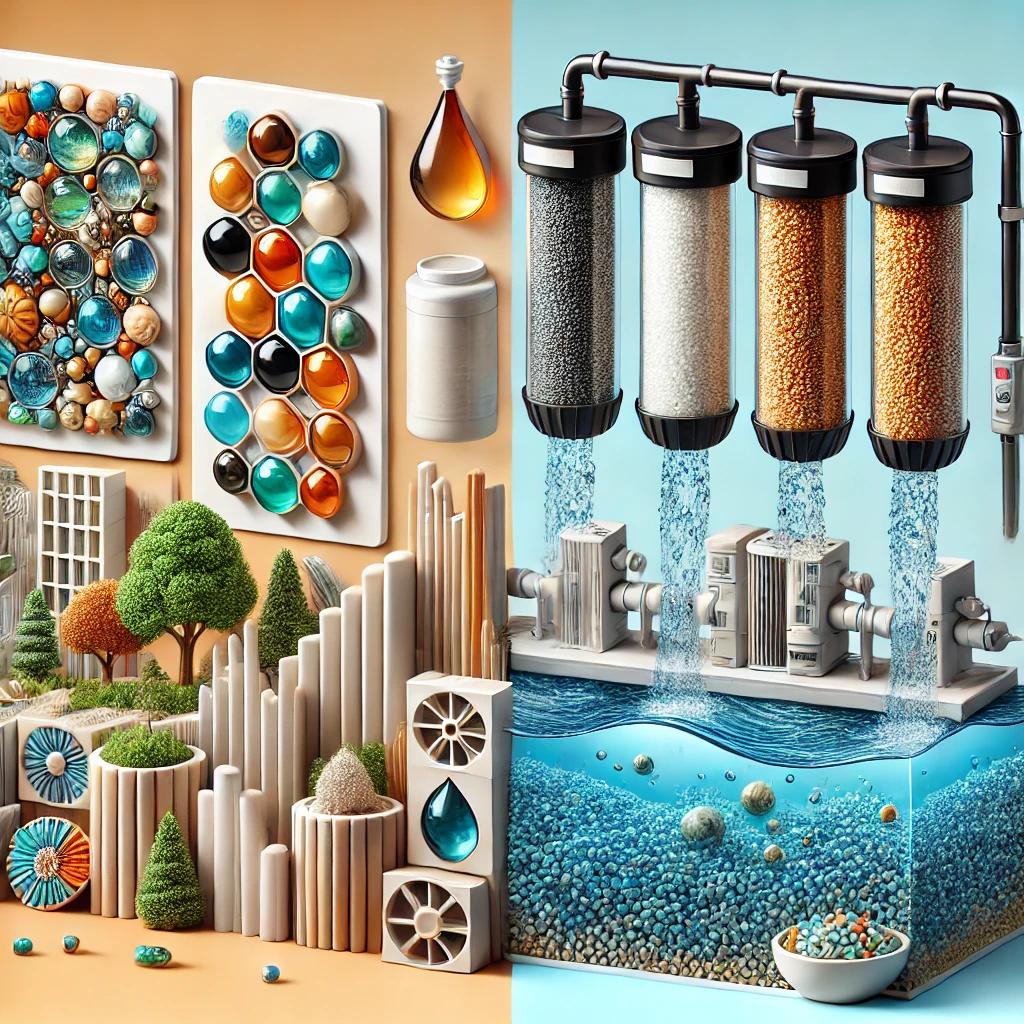What is Resin? Types of Epoxy and Ion Exchange Resins and Their Uses

What is Resin? What are the Functions and Working Principles of Epoxy and Ion Exchange Resins?
Resin is a material obtained from the extracts of plants or the secretions of trees. Due to its chemical and structural properties, it has been used as a versatile material throughout history in various industries, from art to construction. So, what exactly is resin? In this article, you will find all the details about the properties of ion exchange resins commonly used in water treatment and chemical processes, as well as information on epoxy resin and other types of resin.
What is Resin?
Resin is a polymeric material produced naturally or synthetically, found in liquid or semi-solid form, and has adhesive properties. This extract, obtained from the secretions of trees like pine and oak, is used in various industries for different purposes.
Types of Resin
Types of resin include polyurethane, amino, thermoset, thermoplastic polypropylene, polystyrene, acrylic, polyethylene, epoxy, silicone, polyamide, polycarbonate, alkyd, phenolic, polyester, cationic, anionic, mix bed, and ion exchange resins.
Natural Resins
Natural resins are secretions obtained naturally from plants or trees. They usually appear when plants are injured and serve to protect the plant. Examples include pine resin, mastic gum, and beeswax. Thanks to their aromatic properties, they are used in the medical, cosmetic, and perfumery industries.
Synthetic Resins
Synthetic resins are produced in laboratories through chemical processes. They are preferred in many fields due to their durability, adhesiveness, and chemical resistance, ranging from the plastic industry to adhesive production.
Epoxy Resin
Epoxy resin holds a significant place in the world of construction and design. This material, usually in liquid form, creates a hard, durable, and glossy coating when two main components are mixed. It is widely used in floor coatings, art projects, industrial equipment, insulation, and surface coating.
Polyester Resin
Polyester resin is the liquid form of the polymeric material polyester. Due to its chemical durability and excellent adhesive properties, it is commonly used in the production of fiberglass-reinforced plastic products.
Ultraviolet Resin
Ultraviolet resin is a material that hardens and polymerizes when exposed to UV rays. This feature provides great flexibility in producing complex and detailed designs.
Ion Exchange Resin
Ion exchange resin is a specialized material used in water treatment technologies. It softens hard water by replacing calcium and magnesium ions with sodium or potassium ions.
How Does Ion Exchange Resin Work?
These resins have the ability to adsorb ions onto their surface. They soften water by exchanging hardness-causing ions like calcium and magnesium with more desirable ions such as sodium or potassium.
Applications of Ion Exchange Resins
-
Home water purification systems
-
Industrial water treatment
-
Swimming pools and spa centers
-
Pharmaceutical industry
-
Food and beverage industry
-
Electronics manufacturing
-
Laboratory applications
Advantages of Ion Exchange Resins
-
Improving Water Quality: Effectively removes unwanted properties like hardness, color, and odor from water.
-
Efficiency in Industrial Processes: Enhances productivity and improves product quality in production processes.
-
Eco-Friendly: Provides an effective solution for waste management without harming the environment.
